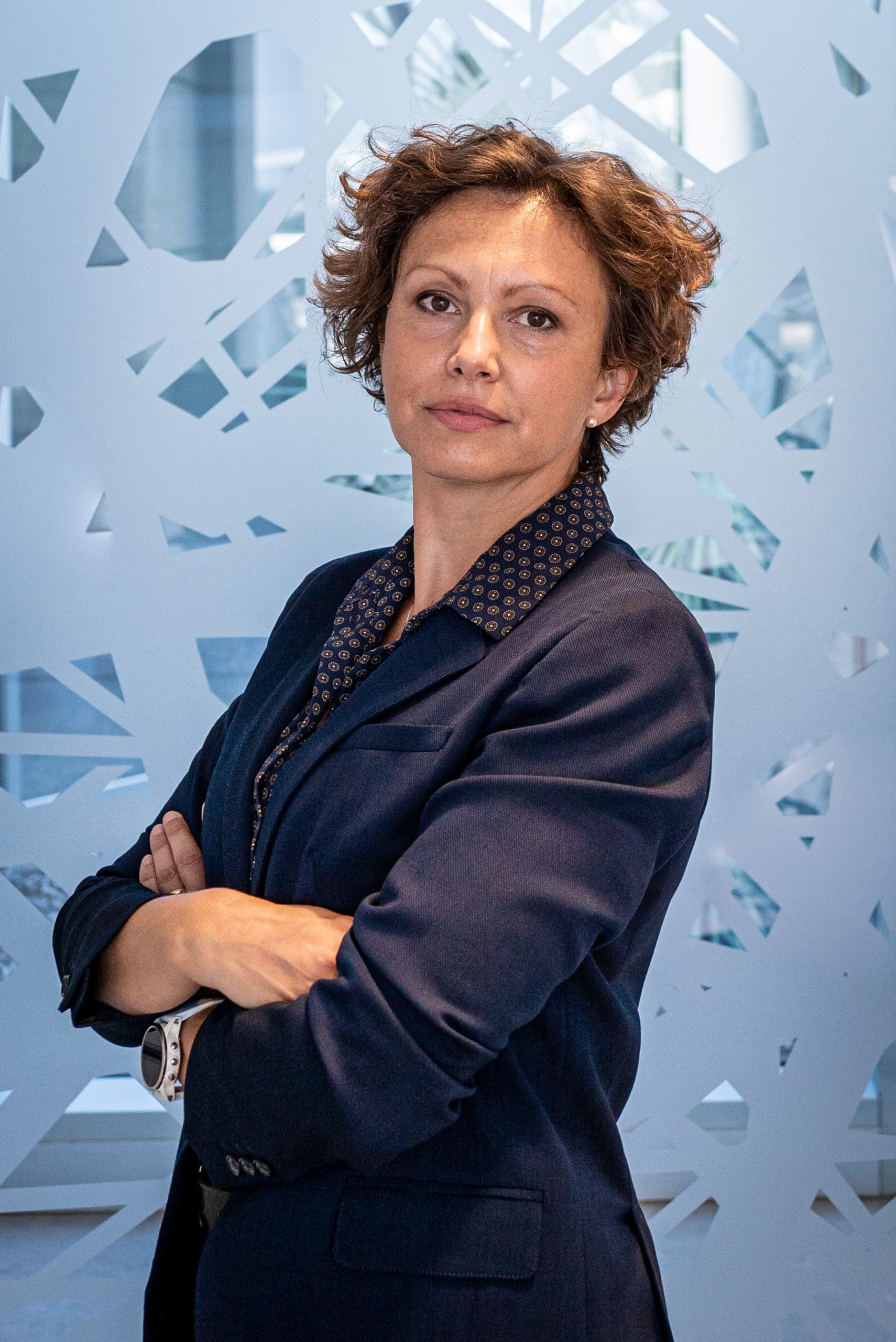
Gaia Pigino
- Associate Head of Structural Biology Research Centre, Structural biology
- Research Group Leader, Pigino Group
Gaia Pigino is a biologist, currently Associate Head of the Structural Biology Center at Human Technopole, after 9 years as Research Group Leader at the Max Planck Institute CBG in Dresden. She collaborate with Alessandro Vannini to develop the Centre for Structural Biology. Gaia’s laboratory studies molecular mechanisms and principles of self-organisation in cilia and other subcellular structures that are of fundamental importance for human health and disease.
CURRENT POSITION
| Since 2021 | Associate Head of the Structural Biology Center at Human Technopole, Milan, Italy |
| Since 2012 | Research Group Leader at MPI-CBG, the Max Planck Institute of Molecular Cell Biology and Genetics, Dresden, Germany |
POSTDOCTORAL RESEARCH
| 2010-2012 | Postdoctoral EMBO Long Term fellow Laboratory of Biomolecular Research (BMR), Department of Biology and Chemistry, Paul Scherer Institute (PSI) Switzerland. Supervisor: Prof. T. Ishikawa. |
| 2009-2011 | Postdoctoral researcher Institute for Molecular Biology and Biophysics, Swiss Federal Institute of Technology (ETH Zürich), Zurich, Switzerland. Supervisor: Prof. T. Ishikawa. |
| 2007-2009 | Postdoctoral MIUR research fellow Fellowship of the “Ministero Italiano dell’Istruzione, dell’Università e della Ricerca”. Laboratory of Cryotechniques for Electron Microscopy, Department of Evolutionary Biology, University of Siena. Supervisor: Prof. P. Lupetti. |
| 2009 | Participant at the Physiology Course at MBL in Woods Hole Marine Biological Laboratory, Woods Hole. Directors: Dyche Mullins and Claire Waterman. |
EDUCATION
| 2003-2007 | Ph.D. Student (Ph.D. Fellowship by the Italian government “Ministero Italiano dell’Istruzione, dell’Università e della Ricerca”). Department of Evolutionary Biology, University of Siena. Supervisor: Prof. F. Bernini and Prof. C. Leonzio. |
| 2002 | Diploma in Natural Science (Summa cum laude). University of Siena, Italy. Thesis supervisors: Prof. C. Leonzio and Prof. F. Bernini. |
OTHER POSITIONS
| 2003 | Research Associate. Department of Environmental Sciences G. Sarfatti, University of Siena. Advisor: Prof. C. Leonzio |
AWARDS and FUNDING
| 2022 | EMBO Member |
| 2019 | DFG Grant – GAČR-DFG Cooperation |
| 2018 | PoL starting fellowship (from the Dresden Excellence Cluster ‘Physics of Life’) |
| 2018 | Keith R. Porter Fellow Award for Cell Biology |
| 2018 | ERC Consolidator Grant (ERC-2018-COG N#819826 CiliaTubulinCode) |
| 2018 | Excellence Cluster ‘Physics of Life’, as a core Principal Investigator |
| 2010 | EMBO Long Term fellowship |
| 2009 | Scholarship from the Marine Biological Laboratory (Woods Hole, Massachusetts) MBL Physiology Course. |
| 2007 | Post-Doctoral Research fellowship from MIUR. |
| 2003 | Ph.D. Fellowship from MIUR. |
Fellowship to students and postdocs
| 2022 | EMBO Long Term Fellowship to Helen Foster |
| 2021 | EMBO Postdoc Fellowship to Nikolai Klena |
| 2019 | HFSP Postdoc Fellowship to Adrian Nievergelt |
| 2018 | EMBO Long Term Fellowship to Adrian Nievergelt |
| 2017 | Marie Curie Fellowship to Adam Schröfel (H2020-MSCA-IF-2016) |
| 2015 | DIGS-BB Fellowship to Guendalina Marini |
| 2012 | DIGS-BB Fellowship to Ludek Stepanek |
Google Scholar
Contacts
Follow on
Publications
-
03/2025 - Advanced Science
Unwrapping the Ciliary Coat: High‐Resolution Structure and Function of the Ciliary Glycocalyx
The glycocalyx, a highly heterogeneous glycoprotein layer of cilia regulates adhesion and force transduction and is involved in signaling. The high‐resolution molecular architecture of this layer is currently not understood. The structure of the ciliary coat is described in the green alga Chlamydomonas reinhardtii by cryo‐electron tomography and proteomic approaches and the high‐resolution cryoEM structure of the […]
-
03/2025 - Nature Reviews Molecular Cell Biology
The intraflagellar transport cycle
Primary and motile cilia are eukaryotic organelles that perform crucial roles in cellular signalling and motility. Intraflagellar transport (IFT) contributes to the formation of the highly specialized ciliary proteome by active and selective transport of soluble and membrane proteins into and out of cilia. IFT is performed by the IFT-A and IFT-B protein complexes, which […]
-
01/2025 - Nature Communications
Tubulin tyrosination/detyrosination regulate the affinity and sorting of intraflagellar transport trains on axonemal microtubule doublets
Cilia assembly and function rely on the bidirectional transport of components between the cell body and ciliary tip via Intraflagellar Transport (IFT) trains. Anterograde and retrograde IFT trains travel along the B- and A-tubules of microtubule doublets, respectively, ensuring smooth traffic flow. However, the mechanism underlying this segregation remains unclear. Here, we test whether tubulin […]
-
01/2025 - bioRxiv
MicroSplit: Semantic Unmixing of Fluorescent Microscopy Data
Fluorescence microscopy, a key driver for progress in the life sciences, faces limitations due to the microscope’s optics, fluorophore chemistry, and photon exposure limits, necessitating trade-offs in imaging speed, resolution, and depth. Here, we introduce MicroSplit, a computational multiplexing technique based on deep learning that allows multiple cellular structures to be imaged in a single […]
-
10/2024 - Nature Communications
Structure, interaction and nervous connectivity of beta cell primary cilia
Primary cilia are sensory organelles present in many cell types, partaking in various signaling processes. Primary cilia of pancreatic beta cells play pivotal roles in paracrine signaling and their dysfunction is linked to diabetes. Yet, the structural basis for their functions is unclear. We present three-dimensional reconstructions of beta cell primary cilia by electron and […]